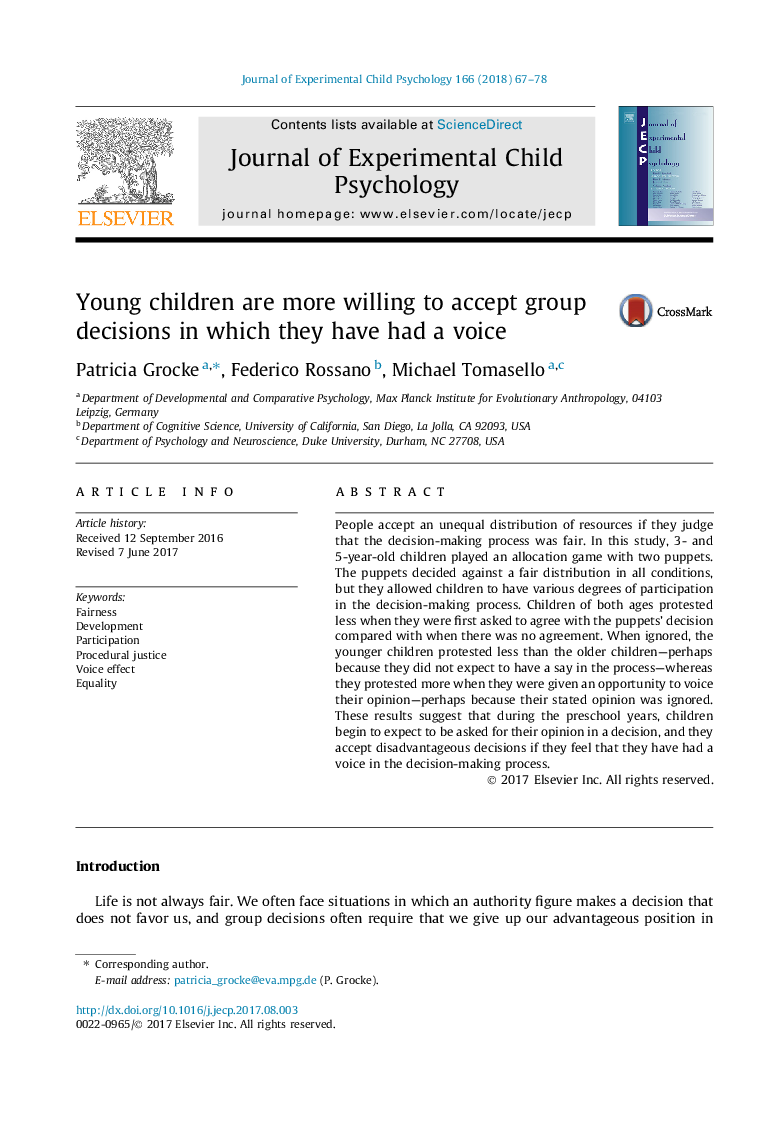| Article ID | Journal | Published Year | Pages | File Type |
|---|---|---|---|---|
| 7274194 | Journal of Experimental Child Psychology | 2018 | 12 Pages |
Abstract
People accept an unequal distribution of resources if they judge that the decision-making process was fair. In this study, 3- and 5-year-old children played an allocation game with two puppets. The puppets decided against a fair distribution in all conditions, but they allowed children to have various degrees of participation in the decision-making process. Children of both ages protested less when they were first asked to agree with the puppets' decision compared with when there was no agreement. When ignored, the younger children protested less than the older children-perhaps because they did not expect to have a say in the process-whereas they protested more when they were given an opportunity to voice their opinion-perhaps because their stated opinion was ignored. These results suggest that during the preschool years, children begin to expect to be asked for their opinion in a decision, and they accept disadvantageous decisions if they feel that they have had a voice in the decision-making process.
Related Topics
Social Sciences and Humanities
Psychology
Developmental and Educational Psychology
Authors
Patricia Grocke, Federico Rossano, Michael Tomasello,
